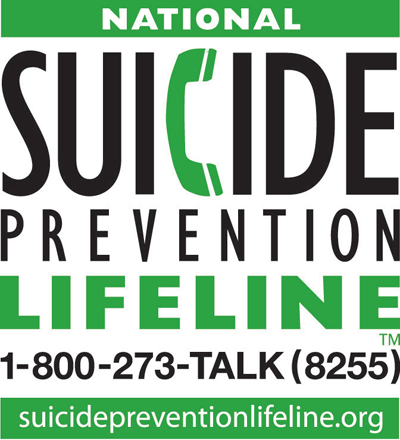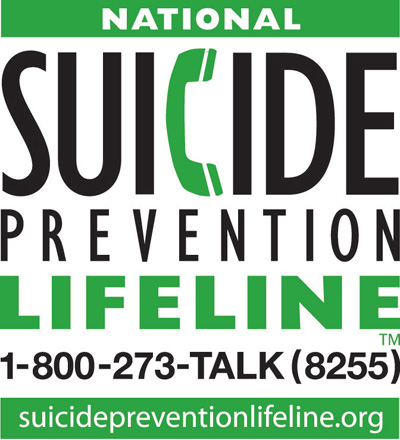Trigger Warning: Suicide
If you or someone you know has suicidal thoughts, please call the National Suicide Prevention Lifeline at 800-273-TALK.
Pete Davidson, star of Saturday Night Live, scared a lot people when he posted to Instagram in late December 2018:
“i really don’t want to be on this earth anymore. i’m doing my best to stay here for you but i actually don’t know how much longer i can last. all i’ve ever tried to do was help people. just remember i told you so.”
He then almost immediately deleted his Instagram account.
Many people were worried and reached out, offering help, support and a listening ear. A month later, he appeared on Saturday Night Live, joking about his post. His colleague and friend John Mulaney said to him: “Pete, look at me. Look me in the eye. You are loved by many…And we are glad you’re okay.”
Not everyone has that visible of a support network. If someone you love is threatening suicide or harming themselves – over social media or in real life – what are the steps you should take?
Warning Signs of Suicide
The first step in helping someone you love is knowing and recognizing the warning signs of suicidal thoughts.

From the National Suicide Prevention Lifeline, warning signs include:
- Talking about wanting to die or to kill themselves
- Looking for a way to kill themselves, like searching online or buying a gun
- Talking about feeling hopeless or having no reason to live
- Talking about feeling trapped or in unbearable pain
- Talking about being a burden to others
- Increasing the use of alcohol or drugs
- Acting anxious or agitated; behaving recklessly
- Sleeping too little or too much
- Withdrawing or isolating themselves
- Showing rage or talking about seeking revenge
- Extreme mood swings
These signs can be exhibited in several ways. Sometimes, you can notice a change in behavior and how the person communicates. If you aren’t in the same location as them, you may notice a change in how they communicate over social media by the pictures they post, the language they use, or the articles they share.
“Talking about a wish to die does not always mean that a person is actually going to hurt themselves, but it is a request for you to pay attention, and it is important to acknowledge that you’ve heard their pain,” wrote F. Diane Barth, psychotherapist, in an article on NBCNews.com.
Take ACTion
The website, Stop a Suicide Today, writes that “70% of people tell someone or give warning signs before taking their own life.”
The site offers the acronym ACT® to help people understand the appropriate steps to take if someone is threating suicide:
A – Acknowledge. Take the threats seriously and listen attentively.
C – Care.Tell them you love them, share how they are important to you, and voice your concern in a caring way. Remain calm and do not tell them to “snap out of it.” The website offers helpful suggestions on how to start the conversation here.
T – Treatment.Get professional help immediately. This could include bringing them to the nearest emergency room, calling 911 or calling the National Suicide Lifeline at 1-800-273-TALK (8255).
If you are witnessing suicidal threats over social media, the issue becomes even more complicated. Social media tends to amplify and/or misconstrue even the best of sentiments. If someone has posted an alarming post on social media, you may consider trying to reach them in-person or over the phone so that your reply isn’t misunderstood.
Barth, in her NBCNews.com article, wrote:
“It’s good to express concern and caring, but remember that social media exaggerates everything. Loving comments can feel over the top and meaningless, so keep your caring words gentle and genuine. And understand that, along the same lines, subtlety doesn’t exist online. Teasing and snark can come across as mean and hurtful, and an already-vulnerable person can feel deeply wounded by something you intend as just good-natured ribbing.”
Using Language to Help Doctors Prevent Suicide
People contemplating suicide often use similar language. This insight led Don Wright (one of the first employees of Assurex Health, now Myriad Neuroscience, purveyors of the GeneSight test) to launch a new company called Clarigent Health. The new venture is backed by Cincinnati Children’s Hospital Medical Center, a top-ranked pediatric medical center and research institution, and seed investor CincyTech.
The company is working to create a smartphone app that uses advanced algorithms to analyze speech. In a therapy session, the app will analyze the language the patient is using and provide an assessment if a patient is at risk for suicide. The doctor or therapist can then use the app’s assessment to help guide treatment decisions.
“The initial products are all built on artificial intelligence … and we’re trying to bring clarity to a place where there isn’t a lot,” Wright told the Cincinnati Business Courier. “The hope is we can be a piece of bringing mental health forward like what’s happened in cancer and HIV and other diseases where there’s true science.”

If you or someone you know may be struggling with suicidal thoughts, you can call the U.S. National Suicide Prevention Lifeline at 800-273-TALK (8255) any time of day or night or chat online.
Our articles are for informational purposes only and are reviewed by our Medical Information team, which includes PharmDs, MDs, and PhDs. Do not make any changes to your current medications or dosing without consulting your healthcare provider.
The GeneSight test must be ordered by and used only in consultation with a healthcare provider who can prescribe medications. As with all genetic tests, the GeneSight test results have limitations and do not constitute medical advice. The test results are designed to be just one part of a larger, complete patient assessment, which would include proper diagnosis and consideration of your medical history, other medications you may be taking, your family history, and other factors.
If you are a healthcare provider and interested in learning more about the GeneSight test, please contact us at 855.891.9415. If you are a patient, please talk with your doctor to see if the GeneSight test may be helpful.




